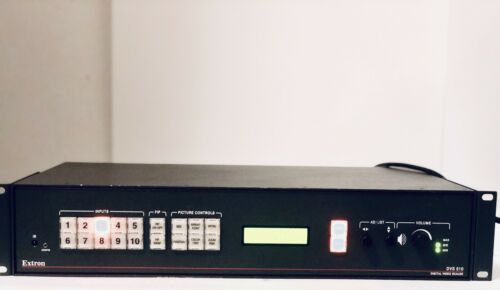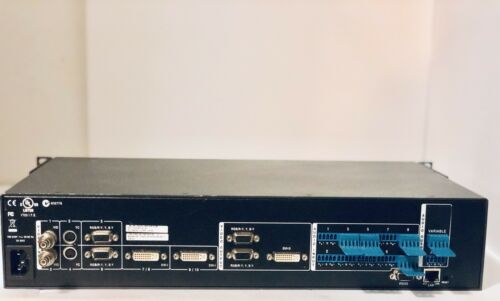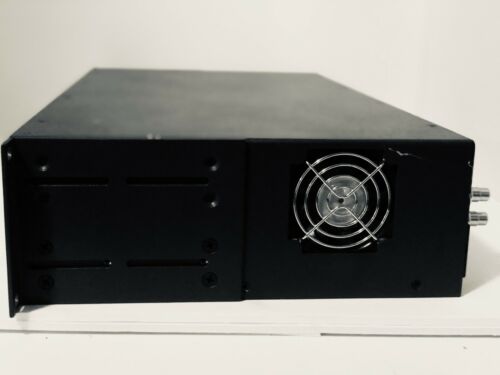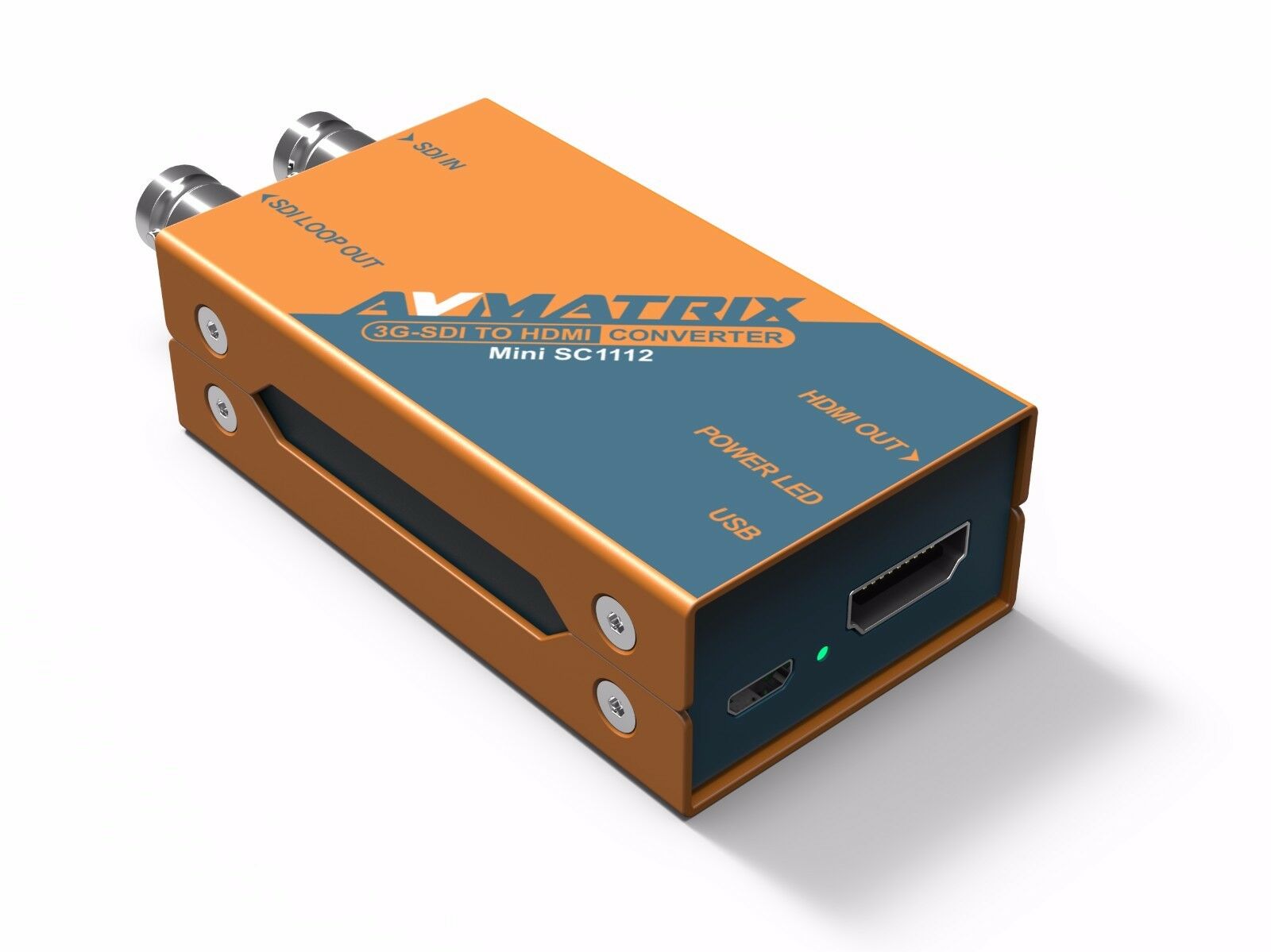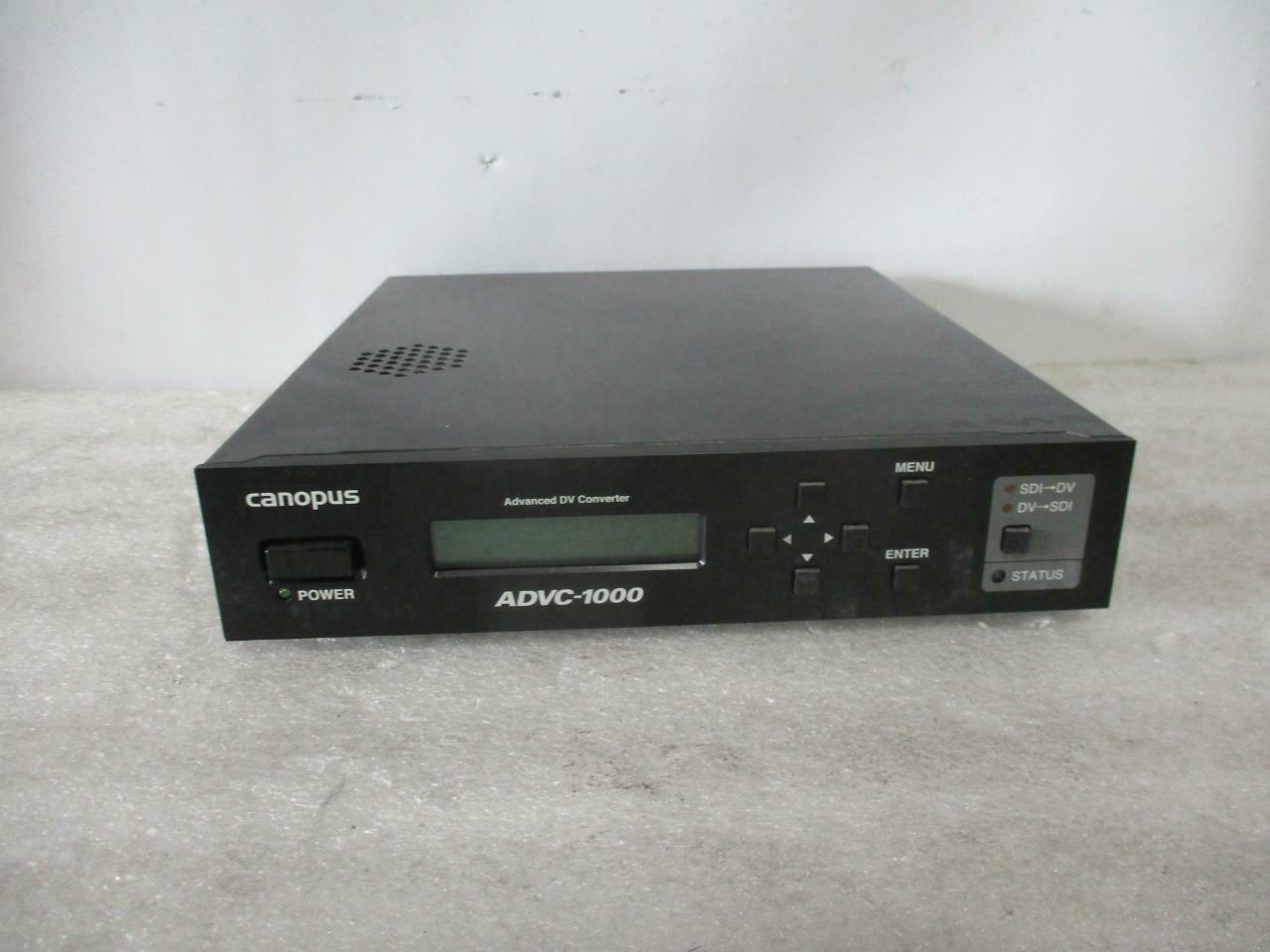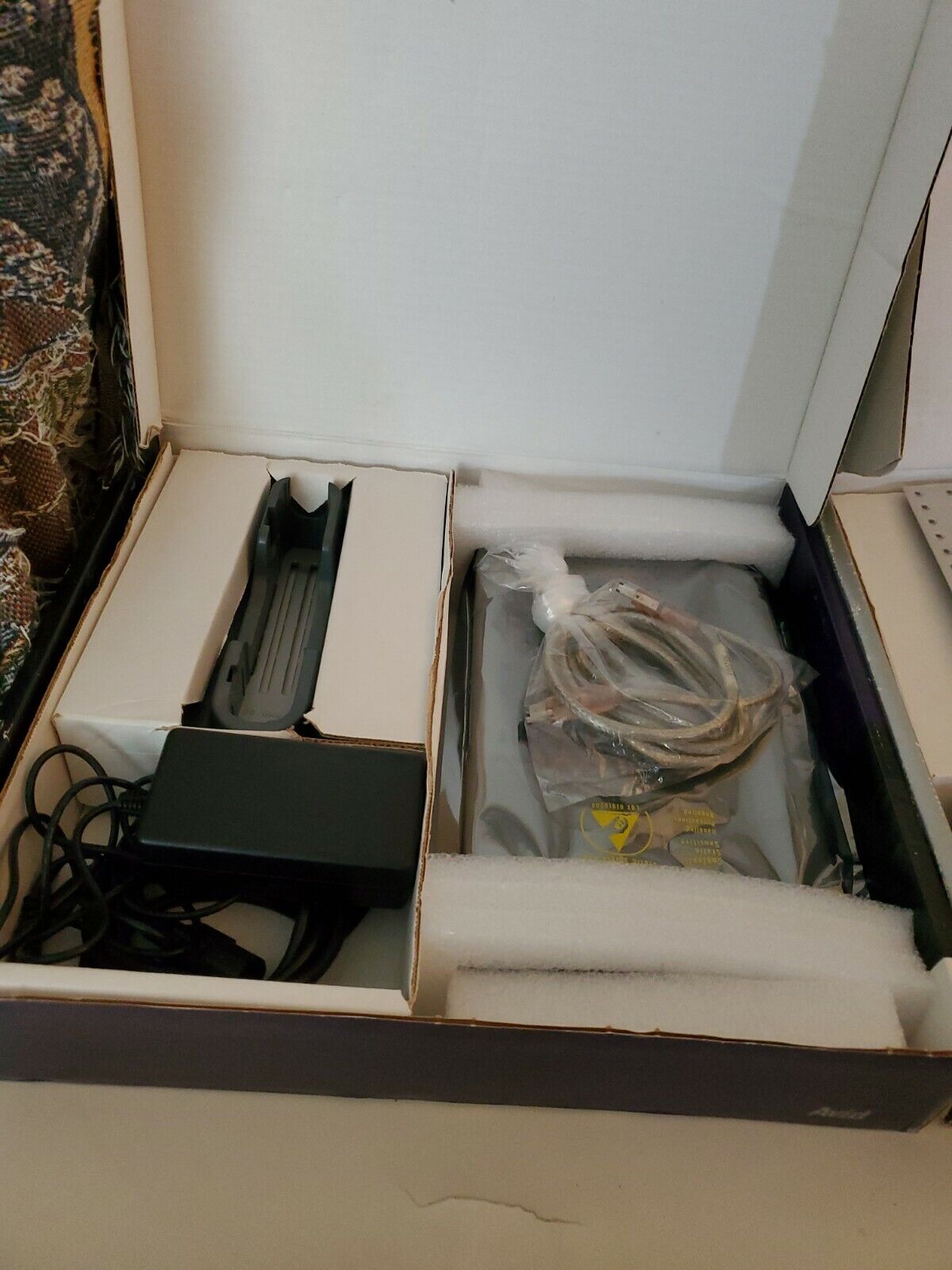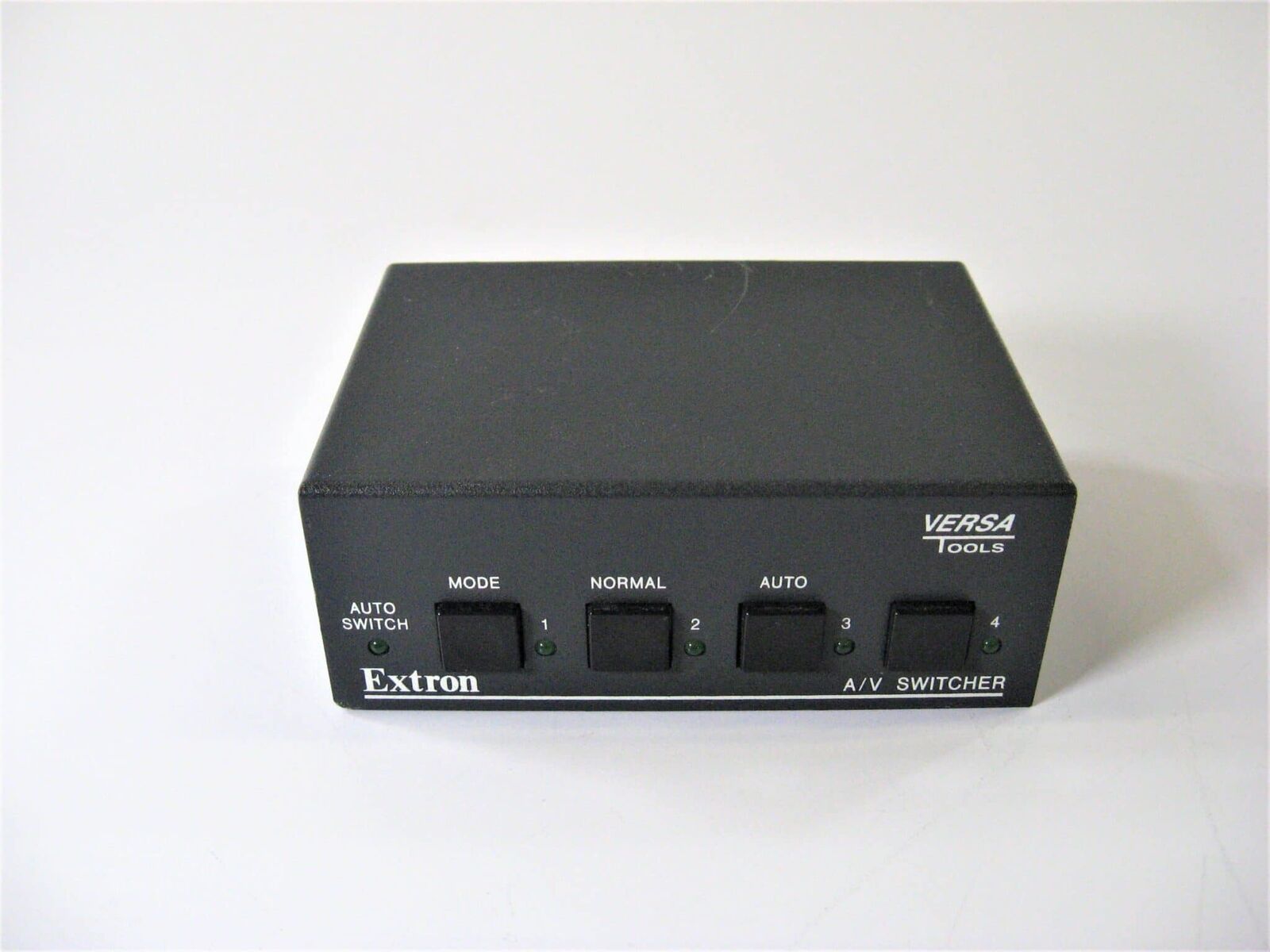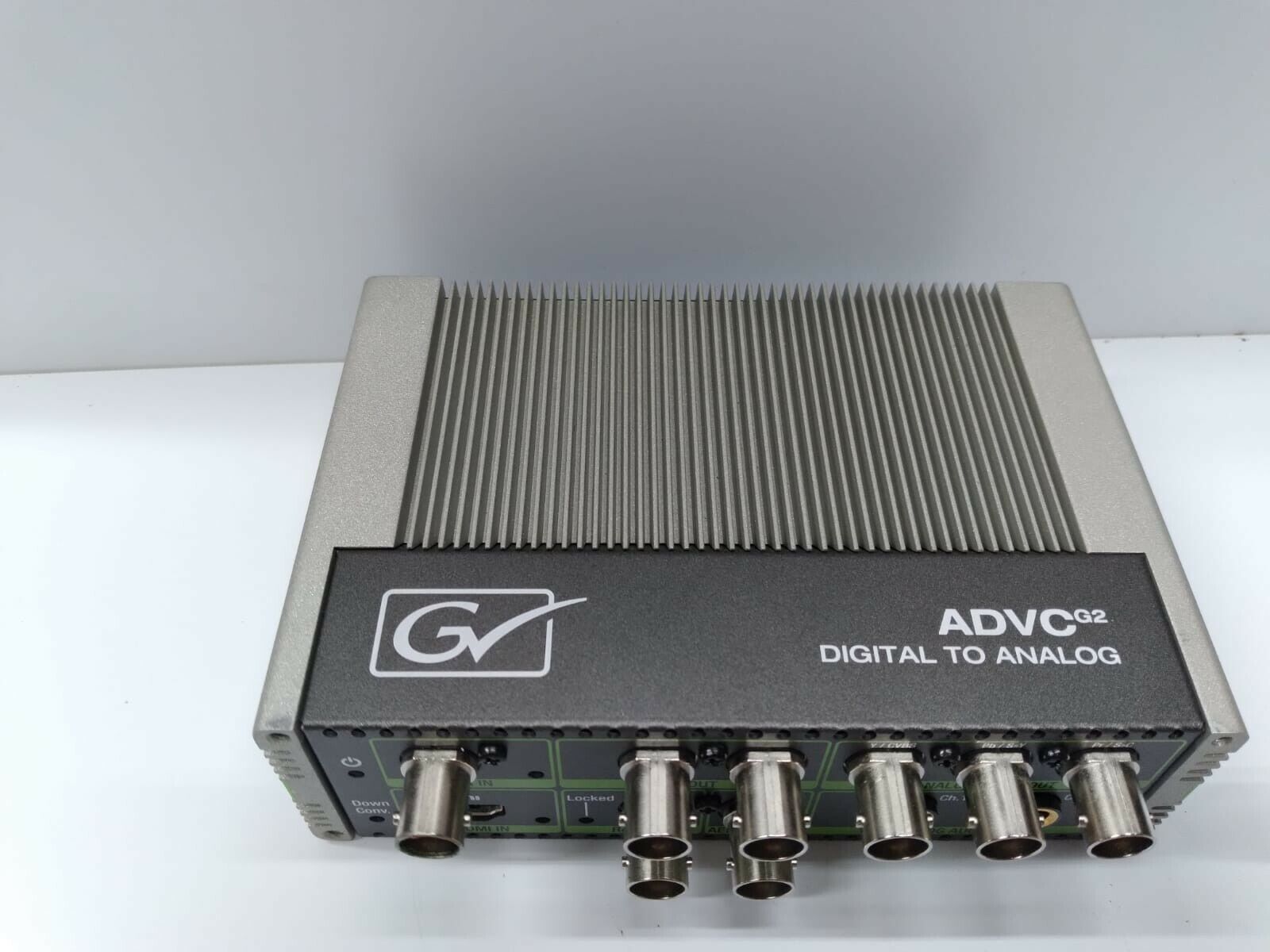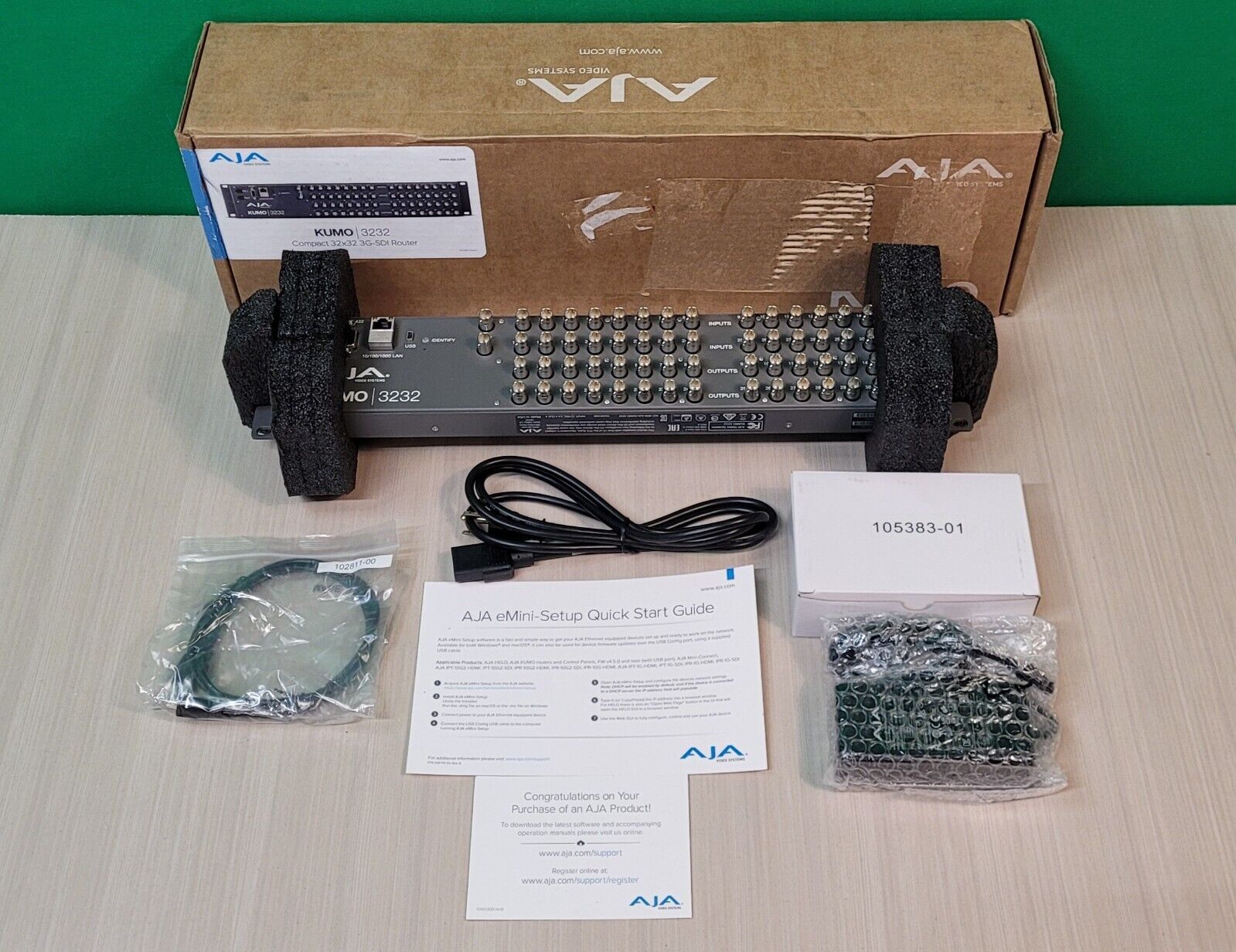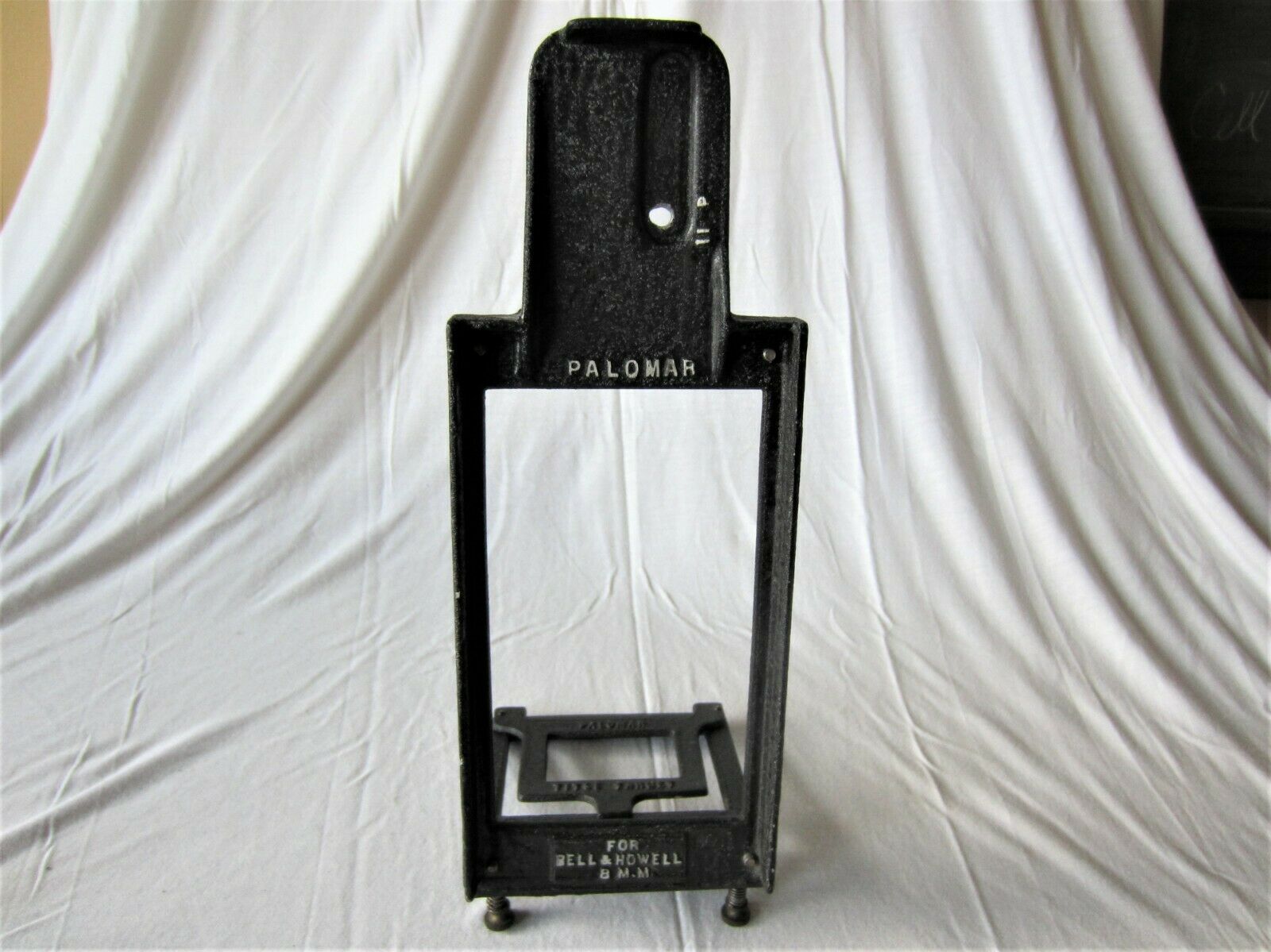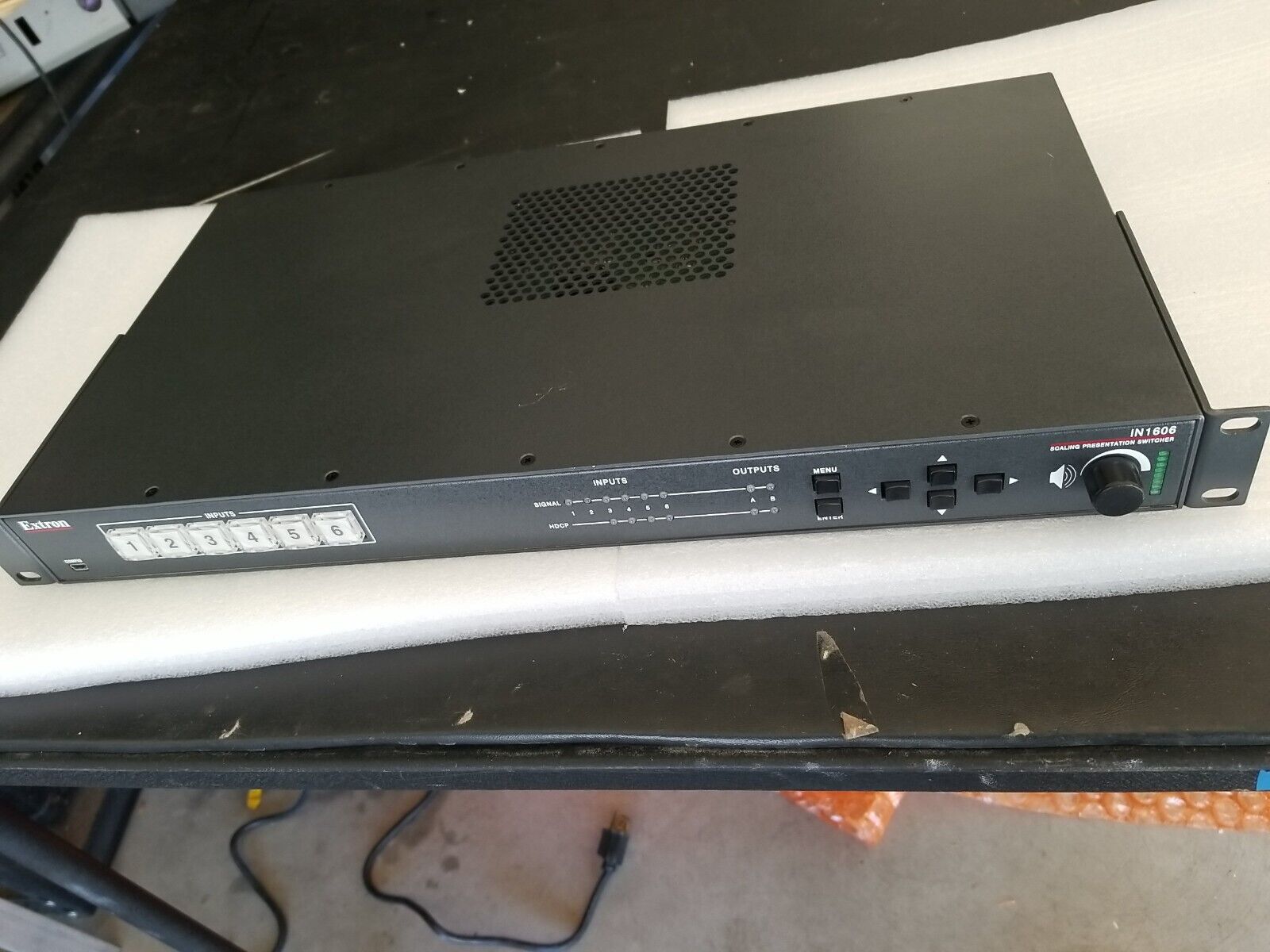-40%
Extron DVS 510 - 10 Input HDCP-Compliant Scaling Presentation Switcher
$ 47.51
- Description
- Size Guide
Description
FeaturesIntegrates DVI/HDMI, analog video, and audio sources into presentation systems
— The DVS 510 provides centralized switching for a wide range of AV sources.
Inputs: Two composite video on BNC, two S-video on 4-pin mini DIN, two RGB/HD component video on 15-pin HD, and two digital and two analog RGB/HD component video on DVI-I connectors; stereo balanced/unbalanced audio for each input on 3.5 mm, 5-pole captive screw connectors
Outputs: Scaled DVI-D and two scaled RGB/HD component video on 15-pin HD; stereo balanced/unbalanced fixed and variable audio outputs on 3.5 mm, 5-pole captive screw connectors; speaker outputs on 5 mm, 4-pole captive screw connector - DVS 510 SA
HDCP compliant
— The DVS 510 fully supports HDCP-encrypted signals.
DVI, RGB, HDTV, and standard definition video upscaling and downscaling
— DVI, RGB computer video, high definition video, and standard definition video sources can all be scaled to the desired output resolution. The DVS 510 features an advanced scaling engine with high quality upscaling and downscaling of high resolution computer-video signals.
Simultaneous DVI and analog RGB or HD component video outputs
— A DVI-D and two analog RGB/YUV outputs are provided for driving up to three display devices.
Selectable output rates from 640x480 to 1920x1200, including HDTV 1080p/60 and 2K
— Available output rates include computer video up to 1920x1200, HDTV rates up to 1080p/60, and 2K.
HDCP authentication and signal presence confirmation
— Provides real-time verification of HDCP status for each digital video input and output. This allows for simple, quick, and easy signal and HDCP verification through RS-232 or Ethernet, providing valuable feedback to a system operator or helpdesk support staff.
HDCP Visual Confirmation
— When HDCP‑encrypted content is transmitted to a non‑HDCP compliant display, a full‑screen green signal is sent to the display for immediate visual confirmation that protected content cannot be viewed on that display.
Image freeze control
— A live image can be frozen using RS-232 serial control or Ethernet control.
Auto-Image™ setup
— When activated, the unit automatically optimizes the image by analyzing and adjusting to the video input signal. This can save time and effort in setting up a newly connected source, particularly in presentation environments where different guest presenter laptops with various output resolutions will be connected.
Auto Input Memory
— When activated, the DVS 510 automatically stores size, position, and picture settings based on the incoming signal. When the same signal is detected again, these image settings are automatically recalled from memory.
EDID Emulation provides selectable resolutions and refresh rates to ensure reliable operation
— The DVS 510 provides a means for specifying the rate of the incoming signal, ensuring proper communication with the video source. EDID Emulation is available exclusively on inputs 5, 6, 8, and 10.
PIP - picture-in-picture
— Allows a video source to be displayed within a high resolution image, or vice versa. Six pre-programmed PIP window options are available, including side-by-side windows, with dynamic, fully adjustable window positioning. Audio switching can be set to follow either the main or PIP window.
Seamless switching
— Seamless cut and fade to black transition effects are available to enhance presentations by eliminating distracting visual jumps, glitches, and distortion commonly seen when switching between computer and video sources.
Front Panel Control with tri-colored, backlit buttons
— The buttons can be custom-labeled for easy identification. Because the buttons illuminate, they are helpful for presenters in low-light environments.
Output Standby Mode
— The unit can be set to automatically mute video and sync output to the display device when no active input signal is detected. This allows the projector or flat-panel display to automatically enter into standby mode to save energy and enhance lamp or panel life.
Supports HDMI signals when used with optional Extron HDMI-DVI adapters
— The DVS 510 DVI inputs and output are compatible with HDMI. The DVS 510 fully passes audio and auxiliary data as part of the HDMI signal, ensuring audio and video compatibility with downstream HDMI-equipped devices including displays.
Audio switching and output volume control
— The DVS 510 features audio switching for 10 stereo balanced or unbalanced input sources, and provides master volume control and muting as well as bass and treble controls. Fixed and variable line level outputs are available, and each output can be balanced or unbalanced. Stereo input signals can be output as dual mono.
Audio input gain and attenuation
— Gain or attenuation can be adjusted for each analog input to eliminate noticeable differences when switching between sources.
Audio breakaway
— Provides the capability to break an analog audio signal away from its corresponding video signal and route to the audio outputs, allowing the analog audio channels to be operated as a separate switcher.
Integrated audio delay
— When enabled, the audio output is automatically delayed to compensate for latency introduced by the video processing.
Available stereo power amplifier model with 25 watts rms per channel into 4 or 8 ohms
— The DVS 510 SA features an Extron exclusive, highly efficient, advanced Class D amplifier design with CDRS™ - Class D Ripple Suppression, an Extron Patented technology that provides a smooth, clean audio waveform and an improvement in signal fidelity over conventional Class D amplifier designs. CDRS eliminates the high frequency switching ripple characteristic of Class D amplifiers, a source of RF emissions which can interfere with sensitive AV equipment such as wireless microphones.
Automatic clip limiter
— The DVS 510 SA includes technology for the integrated amplifier that detects the onset of clipping by comparing input and output signals. Gain is automatically reduced without audible artifacts to protect speakers from clipping distortion.
Picture controls for brightness, contrast, color, tint, and detail, as well as horizontal and vertical positioning, sizing, and zoom
User presets
— Memory presets are available for each input to store and recall optimized image settings.
Automatic 3:2 and 2:2 pulldown detection
— The DVS 510 offers advanced film mode processing techniques that help maximize image quality for NTSC, PAL, and HDTV 1080i sources that originated from film.
Motion adaptive 1080i deinterlacing
— The DVS 510 provides high performance deinterlacing for 1080i signals from HD sources including cable or satellite set-top boxes, delivering optimized image quality through advanced motion compensation.
Aspect ratio control
— The aspect ratio of the video output can be controlled by selecting a FILL mode, which provides a full screen output, or a FOLLOW mode, which preserves the original aspect ratio of the input signal.
Quad standard video decoding
— A digital, four-line adaptive comb filter provides decoding of NTSC 3.58, NTSC 4.43, PAL, and SECAM for integration into systems worldwide.
Internal video test patterns for calibration and setup
— The unit offers several video test patterns to facilitate proper system setup and calibration of display devices.
Provides +5 VDC, 250 mA power on the DVI output for external peripheral devices
Front panel security lockout
— This feature locks out all front panel functions except for input selection; all functions however, are available through RS-232 or IR remote control.
Optional IR remote control
— The optional Extron IR 904 handheld remote control allows for input source switching, picture-in-picture, and direct access to picture adjustments.
Ethernet monitoring and control
— The DVS 510 can be controlled and proactively monitored over a LAN, WAN, or the Internet. An intuitive Web interface is included for such common functions as input switching and master volume control.
RS-232 control port
— Using serial commands, the DVS 510 can be controlled and configured via the Extron Windows®-based control program, or integrated into a control system. Extron products use the SIS™ - Simple Instruction Set command protocol, a set of basic ASCII code commands that allow for quick and easy programming.
Rack-mountable 2U, full rack width metal enclosure
Internal power supply
— Provides worldwide power compatibility, with high‑demonstrated reliability and low power consumption for reduced operating cost
The Extron
DVS 510
is a 10 input, multi-format Presentation Scaling Switcher that accepts and scales DVI, RGB, HDTV, and standard definition signals to a common, high resolution output rate. The DVS 510 is HDCP-compliant and features simultaneous DVI and two analog RGB/YUV outputs. It is a true presentation switcher for professional environments, with audio switching for all video input sources, an available 50 watt stereo integrated amplifier, picture-in-picture, and glitch-free switching. The DVS 510 also offers flexible control options including front panel control, Ethernet, RS-232, and IR.
DVS 510 Series
Video input
Number/signal type
2 composite video
2 S-video
4 RGBHV, RGBS, RGsB, RGBcvS, component video (interlaced, progressive, or HDTV)
2 DVI/HDMI digital video (single link) (HDCP compliant)
Connectors
2 female BNC (composite video)
2 female 4-pin mini DIN (S-video)
2 female 15-pin HD (RGB/component video)
2 female DVI-I (digital and analog signals are accepted)
Nominal level
1 Vp-p for Y of component video and S-video, and for composite video
0.7 Vp-p for RGB and for R-Y and B-Y of component video
0.3 Vp-p for C of S-video
Minimum/maximum levels
0 V to 1.0 Vp-p with no offset
Impedance
75 ohms
Horizontal frequency
24 kHz to 100 kHz
Vertical frequency
24 Hz to 120 Hz
Resolution range
640 x 480 to 1920 x 1200*, 480p, 576p, 720p, 1080i, and 1080p, sampled pixel for pixel
* Reduced blanking version
Higher resolutions are accepted and undersampled.
Return loss
<-25 dB @ 5 MHz
DC offset (max. allowable)
0.5 V
EDID and DDC
Supports emulation of factory preset Extended Display Identification Data (EDID) tables.
HDCP
Compliant with High-bandwidth Digital Content Protection (HDCP)
Standards
DVI 1.0, HDMI, HDCP
Video processing
Decoder
10 bit digital
Analog sampling
30-bit, 10 bits per color; 13.5 MHz standard (video), 165 MHz standard (RGB)
Digital pixel data bit depth
8, 10, or 12 bits per channel; 3 channels for DVI/HDMI
Colors
1 billion
Video output
Number/signal type
2 scaled RGBHV, RGBS, RGsB; Y, R-Y, B-Y
1 scaled DVI/HDMI (HDCP compliant)
Connectors
2 female 15-pin HD
1 female DVI-I (only digital signal active)
Nominal level
1 Vp-p for Y of component video and for G of RGsB
0.7 Vp-p for RGB and for R-Y and B-Y of component video
Minimum/maximum levels
0 V to 0.7 Vp-p
Impedance
75 ohms
Vertical frequency
50 Hz, 60 Hz, or 75 Hz, depending on selected output resolution
Scaled resolutions
640x480
1,2,3
, 800x600
1,2,3
, 852x480
1,2,3
, 1024x768
1,2,3
, 1024x852
1,2,3
, 1024x1024
1,2,3
, 1280x768
1,2
, 1280x800
1,2
, 1280x1024
1,2,3
, 1360x765
1,2,3
, 1360x768
1,2,3
, 1365x768
1,2,3
, 1366x768
1,2,3
, 1365x1024
1,2,3
, 1400x1050
1,2
, 1440x900
1,2,3
, 1600x1200
1,2
, 1680x1050
1,2
, 1920x1200
1,2
, 2048x1080
1,2,4,5,6,7,8,9
, 480p
2,9
, 576p
1
, 720p
1,2,6,7,8,9
, 1080i
1,2,9
, 1080p
1,2,4,5,6,7,8,9
1
= at 50 Hz,
2
= at 60 Hz,
3
= at 75 Hz,
4
= at 23.98 Hz,
5
= at 24 Hz,
6
= at 25 Hz,
7
= at 29.97 Hz,
8
= at 30 Hz,
9
= at 59.94 Hz
Return loss
-21 dB @ 5 MHz
DC offset
±300 mV maximum with input at 0 offset
Sync
Input type
RGBHV, RGBS, RGsB, bi-level or tri-level component video
Output type
RGBHV, RGBS, RGsB; Y, R-Y, B-Y (bi-level or tri-level)
Input standards
NTSC 3.58, NTSC 4.43, PAL, SECAM
Input level
2.75 Vp-p to 5.0 Vp-p for RGBHV or RGBS
0.6 Vp-p for component video tri-level sync
0.3 Vp-p for component video bi-level sync or RGsB
Output level
TTL: 5.0 Vp-p, unterminated
0.6 Vp-p for component video tri-level sync
0.3 Vp-p for component video bi-level sync or RGsB
Input impedance
75 ohms for horizontal; 510 ohms for vertical
Output impedance
75 ohms
Polarity
Positive or negative (selectable)
Audio
Gain
Unbalanced output: 0 dB; balanced output: +6 dB
Frequency response
Fixed and variable: 20 Hz to 20 kHz, ±1.5 dB
THD + Noise
Variable: <0.11% at 1 kHz, 20 kHz bandwidth
Fixed: <0.025% at 1 kHz, 20 kHz bandwidth
S/N
Variable: 90 dB at rated maximum output
Fixed: 90 dB at rated maximum output
Crosstalk
-80 dB at 1 kHz, fully loaded
Stereo channel separation
84 dB at 1 kHz
Bass
±12 dB at 100 Hz
Treble
±12 dB at 10 kHz
Audio input
Number/signal type
10 stereo, balanced or unbalanced
Connectors
(10) 3.5 mm 5-pole captive screw connectors (stacked)
Impedance
>10k ohms balanced/unbalanced, DC coupled
Nominal level
+4 dBu (1.23 Vrms), -10 dBV (316 mVrms)
Maximum level
+10.4 dBu, (balanced or unbalanced) at 1% THD+N
Input gain adjustment
-12 dBu to +12 dBu, adjustable to input
NOTE
0 dBu = 0.775 Vrms, 0 dBV = 1 Vrms, 0 dBV ≈ 2 dBu
Audio output
Number/signal type
1 stereo or 2 mono (2 channels total)
Connectors
(2) 3.5 mm captive screw connectors, 5-pole
Impedance
50 ohms unbalanced, 100 ohms balanced
Gain error
±0.25 dB channel to channel
Maximum level (Hi-Z)
>+21 dBu, balanced at 1% THD+N
>+11 dBu, unbalanced at 1% THD+N
Maximum level (600 ohm)
>+14 dBm, balanced at 1% THD+N
>+10 dBm, unbalanced at 1% THD+N
Audio output — amplified — DVS 510 SA only
Number/signal type
1 stereo or 2 mono (2 channels total)
Connectors
(1) 5 mm captive screw, 4-pole
Load impedance
2 ohms, minimum
Amplifier type
Class D
Output power
25 watts rms per channel, 2/4/8 ohms, 1 kHz, 1% THD
Frequency response
20 Hz to 20 kHz, ±3 dB
THD + Noise
0.15% @ 1 kHz at nominal level (1 watt, 8 ohm load)
S/N
74 dB, 20 Hz to 20 kHz, unweighted
Control/remote — decoder/scaler
Serial control port
1 rear panel female 9-pin D connector, RS-232/RS-422
1 front panel 2.5 mm stereo mini jack, RS-232
Baud rate and protocol
9600, 8 data bits, 1 stop bit, no parity, no flow control
Serial control pin configurations
9-pin D connector
RS-232: 2 = Tx, 3 = Rx, 5 = GND
RS-422: 2 = Tx-, 3 = RX-, 5 = GND, 7 = RX+, 8 = Tx+
Mini stereo jack
RS-232: Tip = Tx, ring = Rx, sleeve = GND
Ethernet control port
1 RJ-45 female
Ethernet data rate
10/100Base-T, half/full duplex with auto-detect
Ethernet protocol
ARP, ICMP (ping), IP, TCP, DHCP, HTTP, SMTP, Telnet
Ethernet default settings
Link speed and duplex level = auto-detected
IP address = 192.168.254.254
Subnet mask = 255.255.0.0
Default gateway = 0.0.0.0
DHCP = off
Web server
Up to 200 simultaneous sessions
8 MB nonvolatile user memory
IR remote control
IR 904 (optional)
30' maximum, 40 degrees off axis
Program control
Extron control/configuration software for Windows
®
Extron Simple Instruction Set (SIS
™
)
Microsoft
®
Internet Explorer
®
ver. 6 or higher, Telnet
General
Power supply
Internal
Input: 100-240 VAC, 50-60 Hz
Power consumption
DVS 510
28 watts
DVS 510 SA
71 watts
Temperature/humidity
Storage: -40 to +158 °F (-40 to +70 °C) / 10% to 90%, noncondensing
Operating: +32 to +122 °F (0 to +50 °C) / 10% to 90%, noncondensing
Cooling
Fan, right to left as viewed from front panel
Thermal dissipation
DVS 510
90 BTU/hr
DVS 510 SA
132 BTU/hr
Mounting
Rack mount
Yes, with included brackets
Enclosure type
Metal
Enclosure dimensions
3.5" H x 17.5" W x 9.4" D (2U high, full rack wide)
(8.9 cm H x 44.4 cm W x 23.9 cm D)
(Depth excludes connectors and knobs. Width excludes mounting brackets.)
Product weight
7.0 lbs (3.2 kg)
Shipping weight
10 lbs (5 kg)
Vibration
ISTA 1A in carton (International Safe Transit Association)
Regulatory compliance
Safety
CE, c-UL, UL
EMI/EMC
CE, C-tick, FCC Class A, ICES, VCCI
